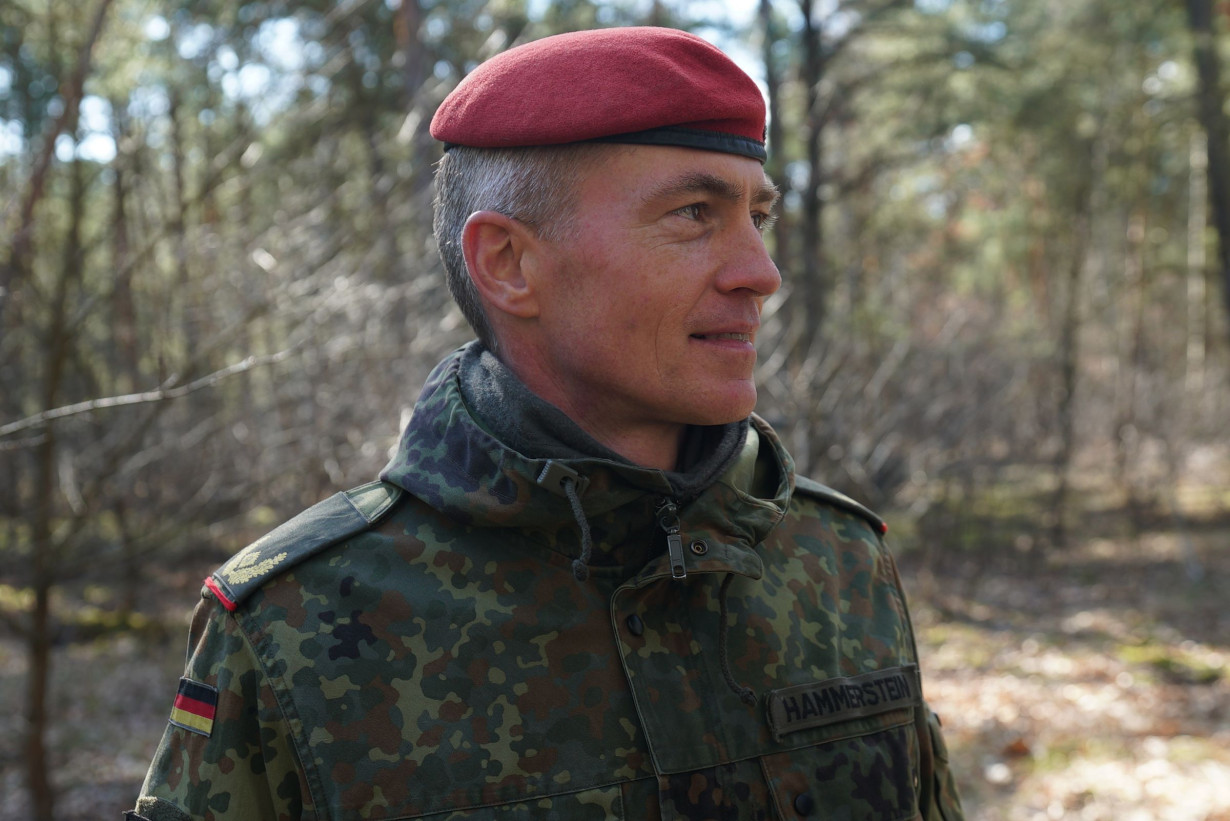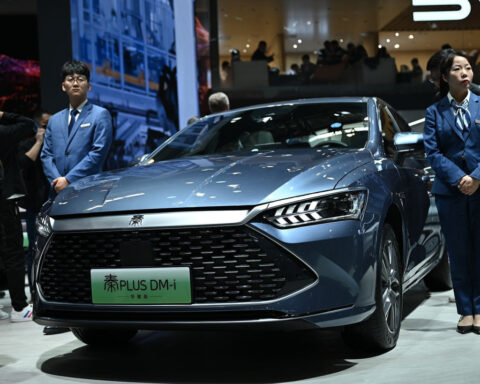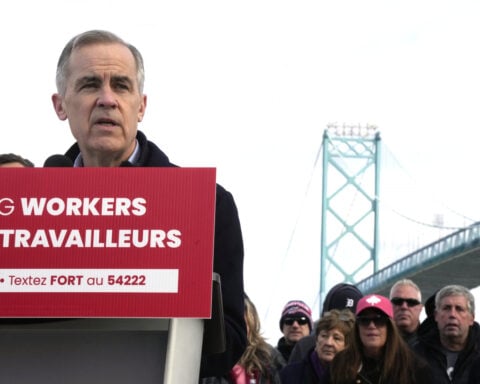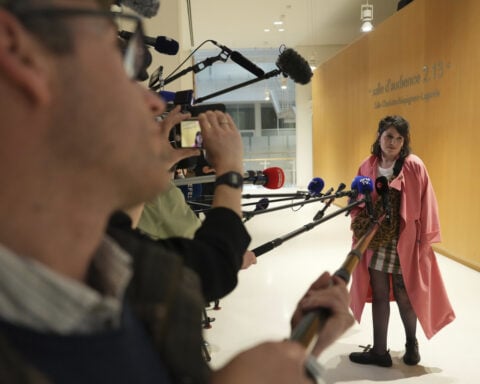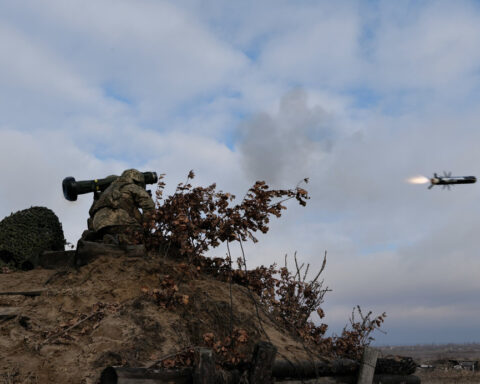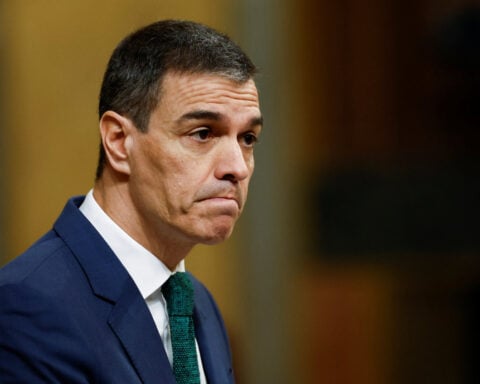Central Germany (CNN) — “Do you think you can trust Putin?” German Brig. Gen. Ralf Hammerstein asks with a wry smile.
It’s a rhetorical question to which most of Europe would give the same answer – no.
As the Trump administration continues to pursue a deal to end the war in Ukraine — one that may end up being more favorable to Moscow than Kyiv — Europeans, for the first time in decades, are focusing on their own military might.
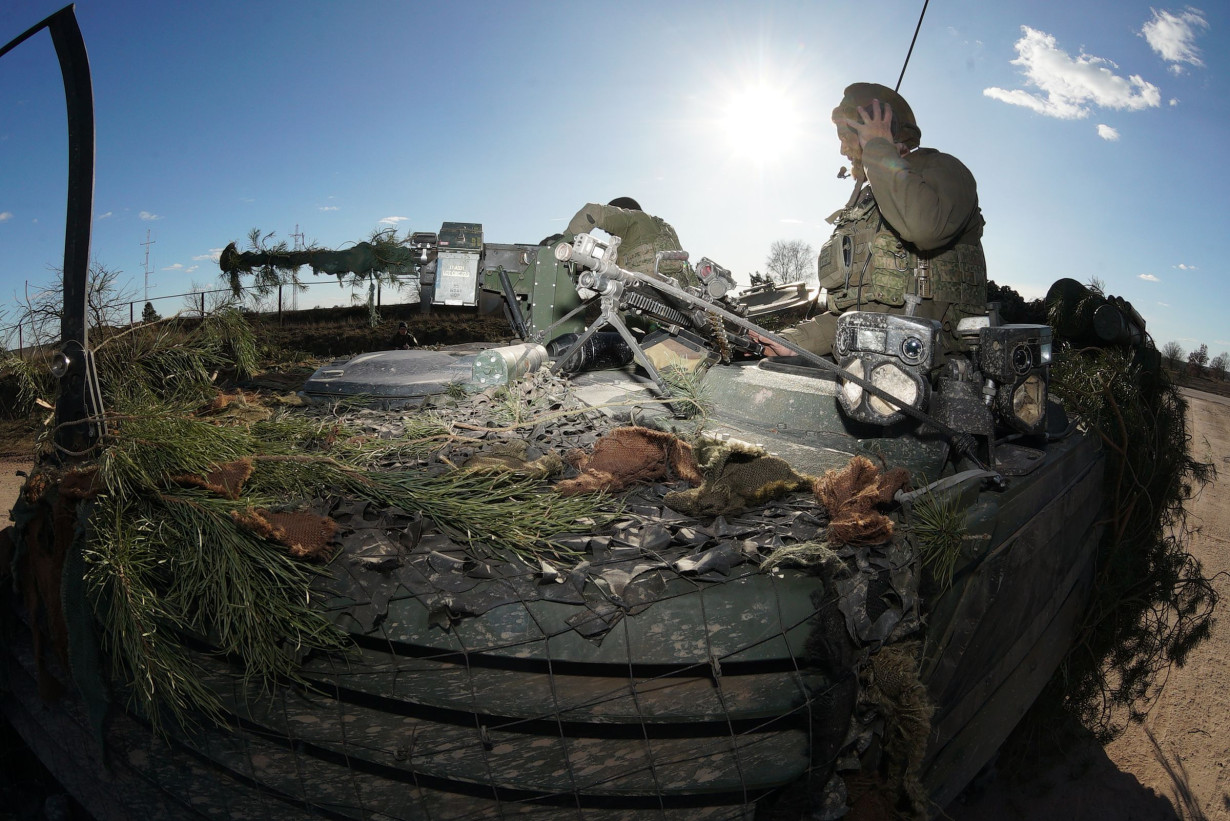
Nowhere is that shift as prominent as in Germany. Its armed forces, known as the Bundeswehr, have been the victim of years of underinvestment – but that is set to change.
Presumptive Chancellor Friedrich Merz has decided that now is the moment for Germany to invest in its military, on levels not seen since the Cold War.
Germany has just passed a major reform to its constitutional debt brake, unlocking billions of euros in funding. One model shared with CNN suggested that over a 10-year period, with Germany spending 3.5% of GDP, it could amount to €600 billion ($652 billion).
CNN spent the day with the Bundeswehr at an undisclosed location in central Germany as five NATO allies took part in training exercises. The simulation was an attack by a “foreign adversary” on another member of the alliance.
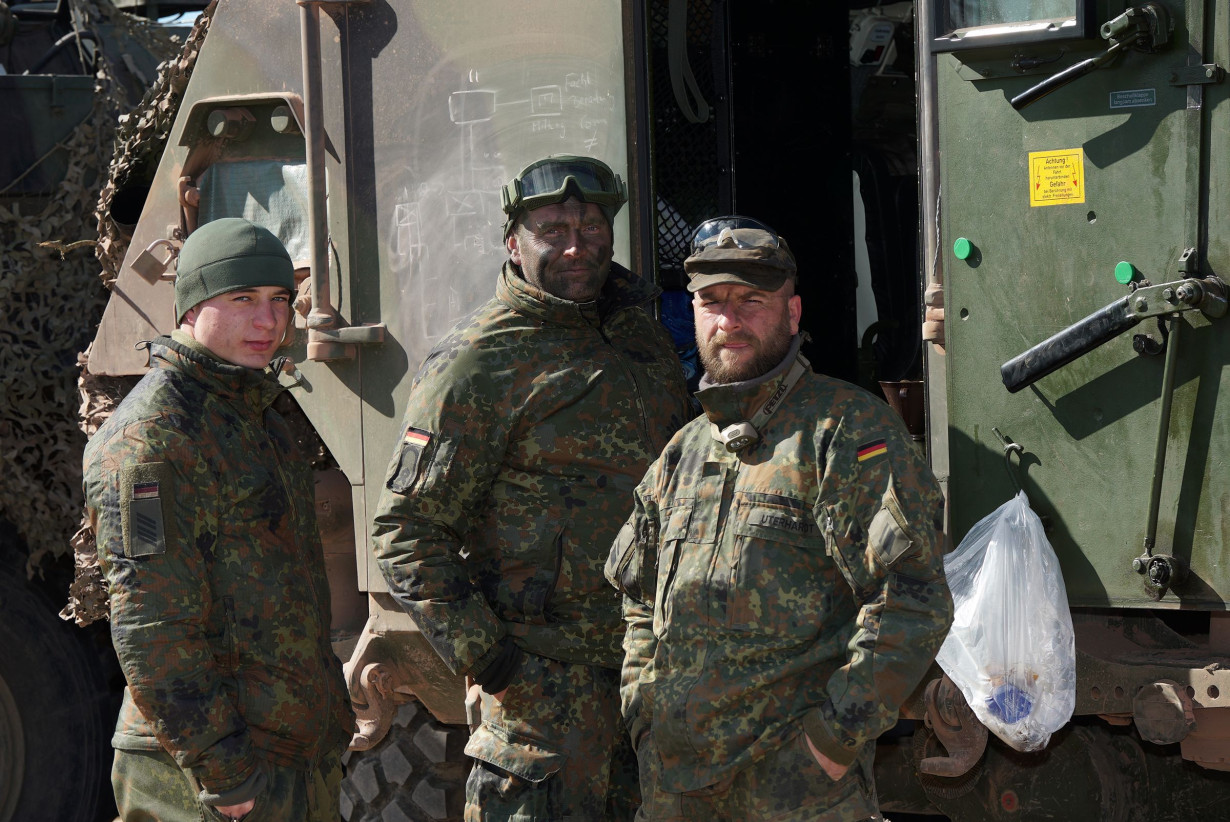
Speaking at the makeshift headquarters for the simulation, Hammerstein told CNN: “Germany is a capable nation in Europe, and has to be a partner for other nations. We are a responsible partner in Europe and a big nation. We (have) got to step up, and we will do that.”
The full-scale invasion of Ukraine in February 2022 was a seismic moment for the continent. War had returned and the detente that had existed since the fall of the Iron Curtain was over.
In Berlin, it kickstarted the period known in German as the “Zeitenwende” – or “turning point.” In effect, it was the beginning of the effort to step up military spending once again.
Olaf Scholz, the now-outgoing chancellor, said the country needed a new defense and security policy – and that the Bundeswehr needed special attention.
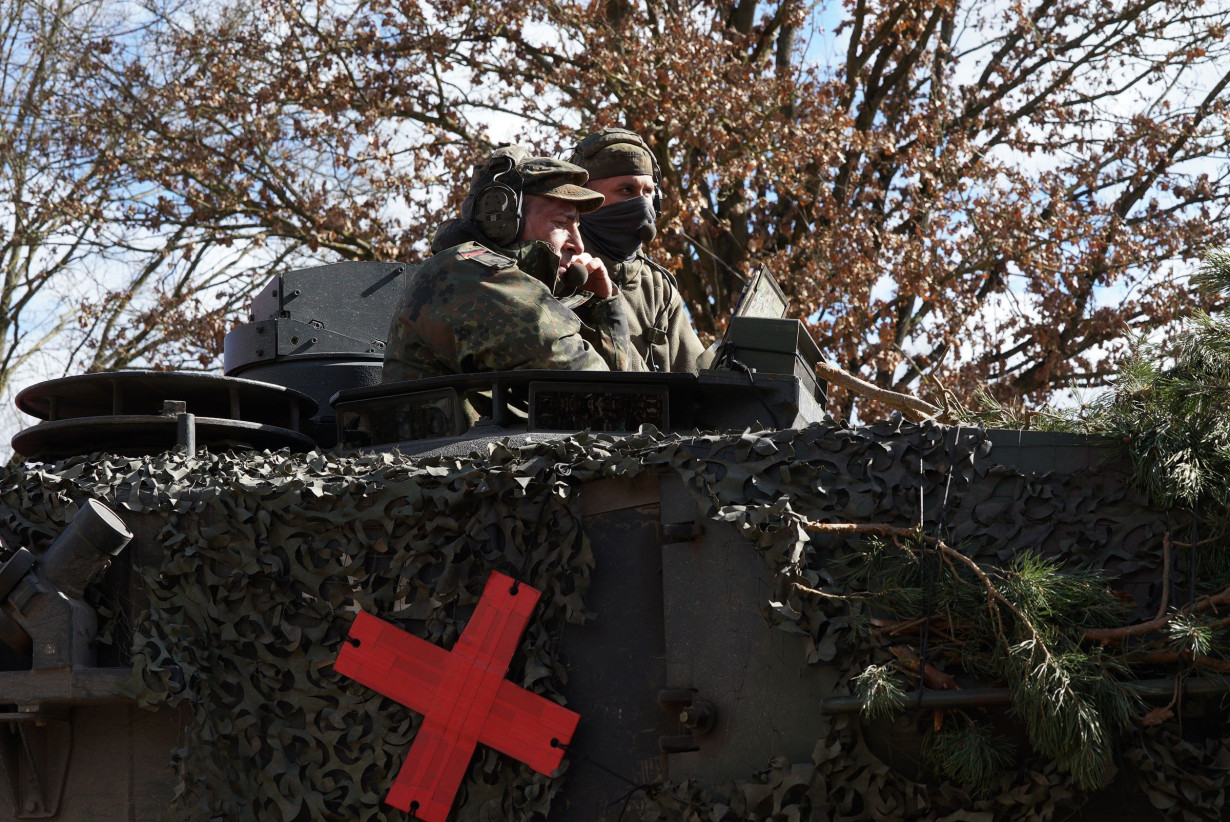
He established a one-off €100 billion fund for “comprehensive investment” into the Bundeswehr. To do so, Scholz had to amend the Basic Law – essentially, the country’s constitution.
Even though that fund was welcomed, the implementation of the policy has been lackluster, and government squabbling and in-fighting ultimately led to Scholz losing his job.
Merz now is looking to supercharge the “Zeitenwende.”
Sudha David-Wilp, a senior fellow at the German Marshall Fund of the United States, a think tank, told CNN that “Merz and (his) coalition need to accelerate this… There’s now a lot of great power competition and hard power is the currency of international politics.”
As the simulated attack was unfolding, back in Berlin Merz was outlining his new vision for the armed forces. “We have believed in a deceptive security in our society for at least a decade, probably much more… This is now the paradigm shift in defense policy that lies ahead of us.”
Since the middle of the Cold War era, Germany’s military expenditure as a percentage of GDP has dropped dramatically. Peaking at 4.9% in 1963, it fell to an all-time low in 2005 of just 1.1%.
Only as recently as 2024 did Germany meet the NATO threshold of 2% spending on defense — marking the first time in more than 30 years.
Hammerstein acknowledges that “every army in the world, in history and also in the future, will always claim not to have enough.” But he equates Germany’s current situation as a reliance on the “peace dividend” from the 1990s that “was a decrease for all the militaries in the world, in Europe especially.”
He thinks that Germany is on the right track now. Last year, for the “first time, (we) were able to spend the 2% GDP NATO criteria, and we’ll additionally spend money, like the €100 billion we did in 2022, and this will continue, and the new chancellor is absolutely dedicated to that.”
Merz may be committed to beefing up Germany’s projected military power and putting its defense on a more secure footing, but a report by the Parliamentary Commissioner for the Armed Forces, Eva Högl, suggested the work to be done was significant.
Released last week, the report outlined that the Bundeswehr didn’t meet recruitment targets, had an aging fighting force, with barracks and basic infrastructure lacking. Addressing journalists at its launch, she said, “the Bundeswehr still has too little of everything.”
In 2018, Germany committed to boosting its standing forces to 203,000 by 2025 — a target date that was later revised to 2031. As the report states, “the Bundeswehr once again failed to achieve its original target.” Högl said that the current Bundeswehr fighting force is 181,174 personnel.
Asked about how the figure should be reached, Hammerstein, who joined as a conscript in 1992, called for a period of military service. Germany officially put conscription into abeyance in 2011.
“I was convinced by the law to join the military. So, I think some kind of obligatory service has to be in place to increase the numbers in the way we want to see it,” Hammerstein said. “It will not happen overnight - but the increase we will see… starting this year.”
The Högl report also highlighted the serving age of the army, saying servicemen and women are “getting older and older.,” The average age in 2019 was 32.4, but has now increased to 34.
Perhaps the most damning section of the report came with a bill attached. It said €67 billion were required for infrastructure projects, and described barracks and properties as “still in a disastrous state.”
For Hammerstein, though, it isn’t always about money. He insists that Germany has a sound platform to launch from, saying: “It’s about the quality and what I see here during the training is that we have a good substance. We have really highly motivated soldiers… and that keeps me very optimistic that the substance is good, and now we have to increase it.”
There is also a shift in the national psyche towards the Bundeswehr. While Germans are usually very image-conscious over their military, particularly given the country’s history, polling suggests many now hold a more positive opinion.
A survey conducted by German public broadcaster ARD in March found 66% of respondents believe it’s right to increase spending on defense and the Bundeswehr, while 31% said spending should remain the same or be cut further.
It also found that 59% of those surveyed agreed that Germany should significantly increase its debt in order to “cope with upcoming tasks, especially in defense and infrastructure.”
As Merz embarks on turning around the German juggernaut, he is confident that he is setting Germany on the right track towards a more secure and prosperous future.
“Germany is back,” he declared a week ago in Berlin. “Germany is making a significant contribution to the defense of freedom and peace in Europe.”
The-CNN-Wire
™ & © 2025 Cable News Network, Inc., a Warner Bros. Discovery Company. All rights reserved.

 Trump has begun another trade war. Here's a timeline of how we got here
Trump has begun another trade war. Here's a timeline of how we got here
 Canada's leader laments lost friendship with US in town that sheltered stranded Americans after 9/11
Canada's leader laments lost friendship with US in town that sheltered stranded Americans after 9/11
 Chinese EV giant BYD's fourth-quarter profit leaps 73%
Chinese EV giant BYD's fourth-quarter profit leaps 73%
 You're an American in another land? Prepare to talk about the why and how of Trump 2.0
You're an American in another land? Prepare to talk about the why and how of Trump 2.0
 Chalk talk: Star power, top teams and No. 5 seeds headline the women's March Madness Sweet 16
Chalk talk: Star power, top teams and No. 5 seeds headline the women's March Madness Sweet 16
 Purdue returns to Sweet 16 with 76-62 win over McNeese in March Madness
Purdue returns to Sweet 16 with 76-62 win over McNeese in March Madness
